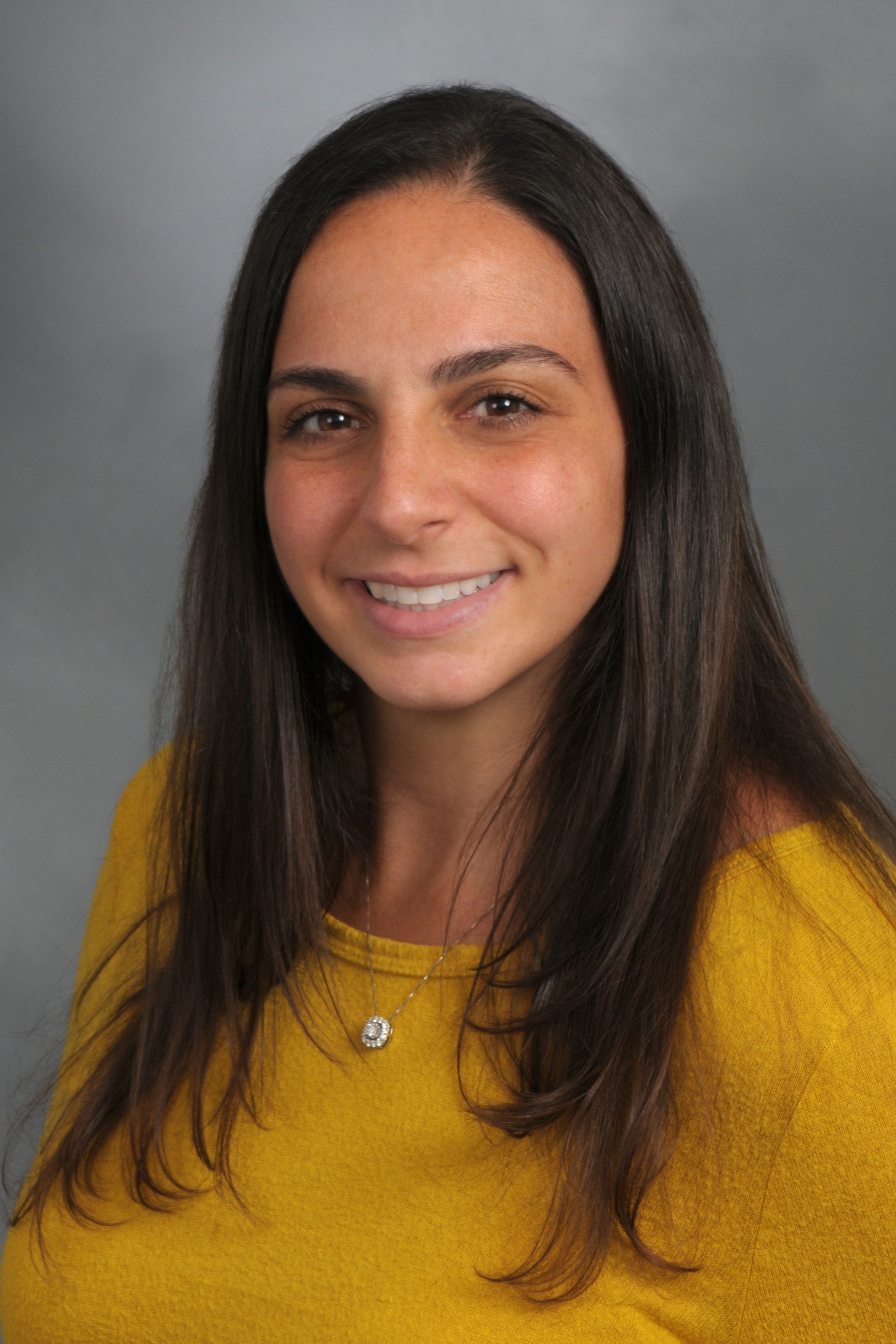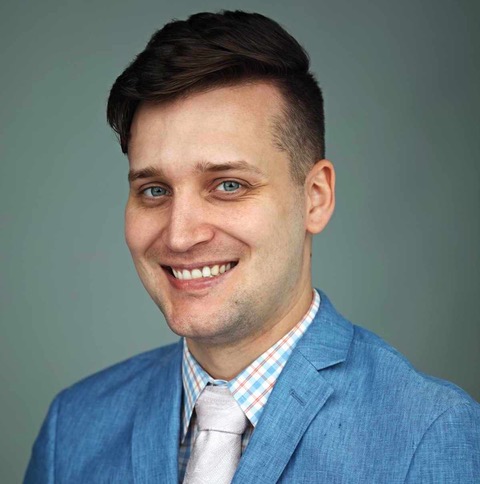
| This Month's Alumni Spotlight | |
|
Giuseppina Caravella, MPH Class of 2012 Community Health |
This month’s Alumni Spotlight, PPH alumna, Giuseppina Caravella Share your story/experience being a Stony Brook MPH Alum In 2012 I graduated with my MPH from Stony Brook. Following my passion for community health and health education, I quickly sat for the CHES (Certified Health Education Specialist) certification exam. My first role in public health was as program coordinator at a School Based Health Center in a Brooklyn high school. I loved that job; I was able to work with students and staff as well as the community at large on various health initiatives. I was also able to get involved on the policy level working with the NYC Department of Education and NYC DOH. After about 2 and a half years, my husband and I bought a house on Long Island. The commute was very difficult and expensive, so I looked for a job closer to home. My second public health role was as program coordinator of the Keeping Families Healthy program at Stony Brook Pediatrics. Our program matched high needs and at-risk families with a Community Health Worker (CHW) who would make home visits and help coach the family and assist them in identifying community resources. I supervised the CHWs and oversaw the day-to-day operations of the program. Unfortunately, after about 4 and a half years, the funding for the program was ending and my job search had to begin again. At the time I really was not able to find anything exactly aligned with my interests, so I sort of took a side-step. I went on to being a study coordinator for clinical trials at the Stony Brook Cancer Center. I have a background in the sciences, and I have worked in research before, so I figured I would take the opportunity to explore that field more. Versatility really is the beauty of having an MPH. The degree checks off many boxes for many kinds of jobs, and you can move around until you find the aspect of the field that suits you best. I worked in clinical trials for 2 and a half years, it was a very interesting job, but it was mostly one on one with patients, and my interests lie more in population health. Last spring, I was fortunate enough to find out about a new job opportunity in the Cancer Center for a Health Education Specialist. These kinds of jobs don’t come around often at Stony Brook. It seemed like the perfect fit for me given my background in community health, health education, and my new experience in oncology. I was fortunate enough to get the job, and that’s where I am now! Why did you choose to get a MPH degree? After undergrad, I wasn’t exactly sure what kind of job I wanted to get, I felt kind of lost. I always liked school, so I decided to stay a while longer. I had taken a few public health classes as an undergraduate, and I really enjoyed them. I have always been interested in issues of social justice and health equity. I wanted to find a job that would allow me to impact the community and work together with people for a better world. Stony Brook had an MPH program, and my best friend was in the program and loving it. So, I applied, and it was a perfect fit. Where are you now? Currently, I am a Health Education Specialist in the Stony Brook Cancer Center Office of Community Outreach and Engagement. How did your degree prepare you for your job? I think that getting my degree in public health, particularly with a concentration in community health, really shaped my way of viewing the world. I learned how to think critically about what I was reading or seeing in the news- understanding the source of information, what does the data really mean, and correlation does not equal causation. I learned about what motivates people’s health behaviors, the ability to change those behaviors, as well as the impact of barriers and inequities. Importantly, I also learned about various levels of policy, and how past policies have shaped society and institutional barriers. There is allot of victim blaming in our society. I think that is because people don’t take the time to understand what led to a situation and what constraints people are up against. Learning about a “harm reduction approach” in my MPH classes was very eye opening for me. The world is not black and white, there are many grey areas. It is not as simple as “don’t do drugs, period”. It was novel for me to think about meeting people where they are, understanding what it is about their circumstance that led them to this behavior, and how we can work together to make it better. I distinctly remember learning about needle exchange programs for the first time and being sort of in disbelief until I really took the time to learn more about them. In my current job, for example, people might oversimplify and make a general statement like “You chose to smoke, and you got lung cancer”. As a Health Educator, we are taught to approach the situation with empathy and to understand our audience. We teach about adopting healthy behaviors, but not without identifying and addressing barriers, discussing beliefs and attitudes, and acknowledging societal barriers such a racism. In doing my practicum, I learned about the importance of including the communities you are targeting in your planning process for interventions. Your audience’s input is integral to delivering a culturally competent message which is more likely to be better received. As health educators, we tailor our approach for different populations so the information they get is relatable. What advice do you have for current MPH students? My advice would be, don’t be afraid of change or to step out of your comfort zone. One thing that can be discouraging in this field is that many jobs are grant funded. By definition they have an end date. It is tough to come to terms with and it makes the decision whether or not to take a job difficult. It might be your dream job on paper, but at the end of the day we all have bills to pay. My job in clinical trials was definitely outside of my comfort zone, but I tried it anyway. It offered valuable experience and I learned a lot. Most importantly, it led me to my current position, which I am loving.
|
Previous Alumni Spotlight |
|
|
Connor Leszczuk, MHA Class of 2021 Master of Health Administration |
This month’s Alumni Spotlight, PPH alumnus, Connor Leszczuk Why did you choose to get an MHA degree? I feel that it provided the best value and allowed me to also fully utilize my other skill sets that I’ve developed. Being multi-faceted is one of my highest career priorities. Jack of all trades, master of none, but better than a master of one. Where are you now? Currently I am the Assistant Administrator at Wabasso Rehabilitation and Wellness Center, which is a Long-Term Care facility in Minnesota. I am pursuing my LNHA license and plan to be fully credentialed by the beginning of this year. How did your degree prepare you for your job? The MHA program is designed so well that there is not a single thing I do not use on a daily basis. I originally thought that understanding Finance, Medicare/Medicaid, and Insurance was going to be most influential to my professional success, but I have found that the leadership courses and being self-aware of my strengths/weaknesses has provided just as much value as understanding revenue cycle and regulations. What advice do you have for current MPH and MHA students? Be open to new opportunities and participate in as many external activities as possible. I originally planned on sticking with IT, my career while I was studying, and utilizing this education to be a valuable resource for both technical and clinical operations. However, as I moved through the program and was exposed to more specific fields far outside my comfort zone, like Long Term Care and Health Law, I discovered new found interests and thanks to the connections I established during the mentorship program I was given an opportunity to take a significant leap in my career. The fastest way to grow your career is by making yourself uncomfortable; professional growth is slow when you’re complacent. Finally, don't be afraid to reach out to Employees and Administration within the hospital and ask to shadow them. Some of my most valuable education came from talking with them and seeing first-hand how they contribute to the success of the organization. Some of them are your instructors! |


